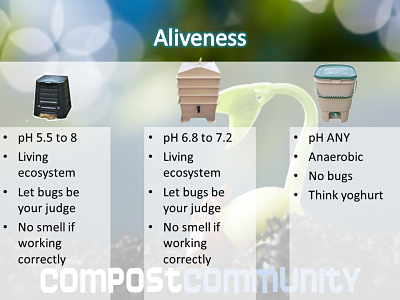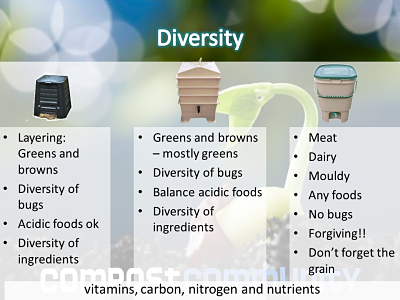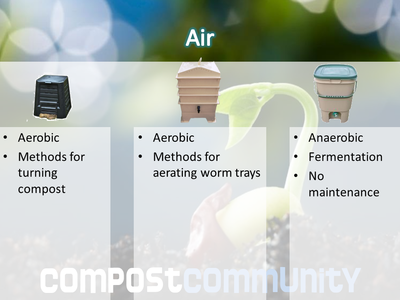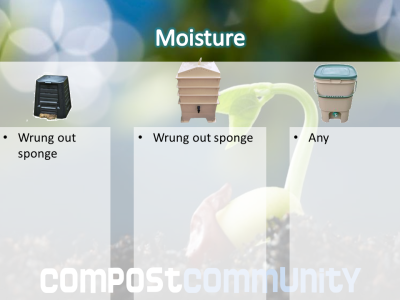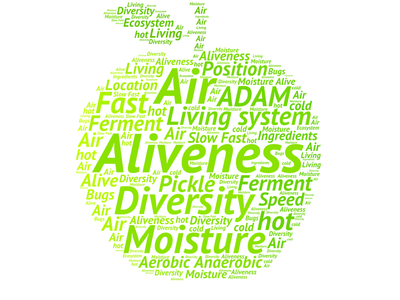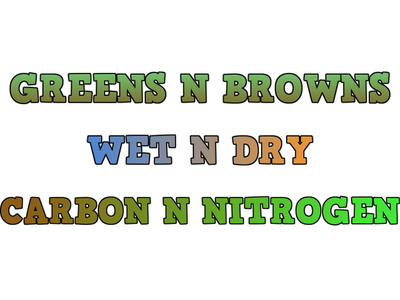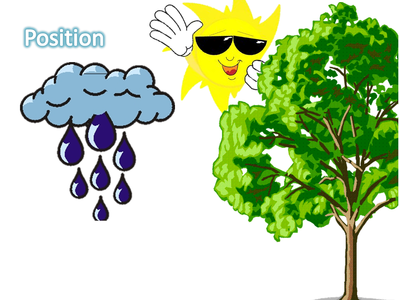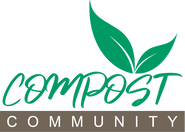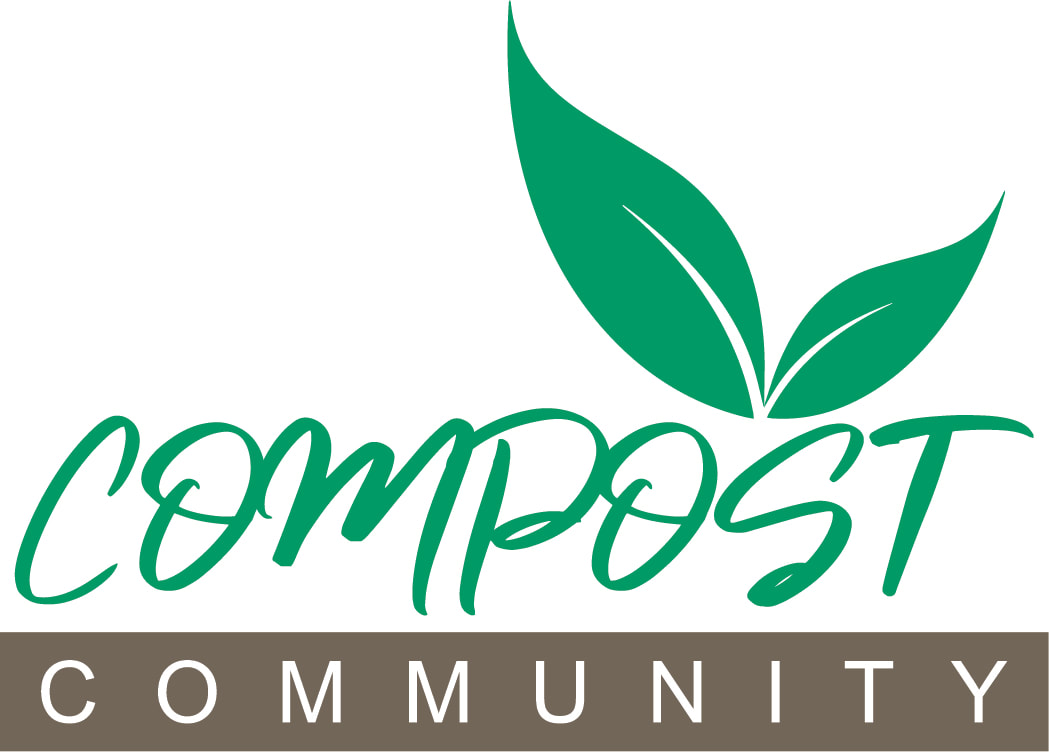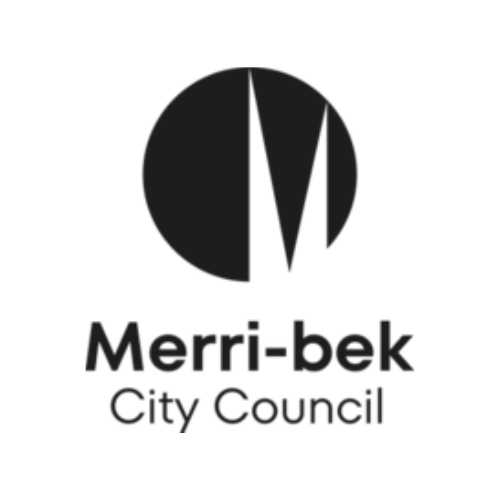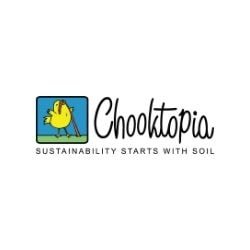Introduction to composting |
|
Composting is best suited to people with a bit more space in their yard, and households that produce garden waste such as lawn clippings and leaves. Composting is the one system that you can place small amounts of soil into.
It is a ‘hot’ form of processing organic matter, meaning that an effective compost system will reach 60 degrees at the core. That is why you sometimes see steam coming off the top of a compost heap. The larger the compost heap, the better chance of it reaching the optimal heat.
The heat is actually caused by two things – the breaking down of organic matter, and the millions of microorganisms and bacteria processing the organic matter. There is no need to add worms to your compost. Worms will visit when they conditions are right, and move out when it is too hot.
Composting can be done in a number of ways. Historically, a compost heap has been used – either just heaped in the garden, or with a wall or barrier around it made from recycled materials such as brick, timber or even chicken wire. These days, with space more limited, compost bins offer a convenient solution.
It is a ‘hot’ form of processing organic matter, meaning that an effective compost system will reach 60 degrees at the core. That is why you sometimes see steam coming off the top of a compost heap. The larger the compost heap, the better chance of it reaching the optimal heat.
The heat is actually caused by two things – the breaking down of organic matter, and the millions of microorganisms and bacteria processing the organic matter. There is no need to add worms to your compost. Worms will visit when they conditions are right, and move out when it is too hot.
Composting can be done in a number of ways. Historically, a compost heap has been used – either just heaped in the garden, or with a wall or barrier around it made from recycled materials such as brick, timber or even chicken wire. These days, with space more limited, compost bins offer a convenient solution.
Getting started
A recipe for success
The ADAM principle
ADAM stands for:
These are the 4 essential ingredients (along with organic matter) to have a successful compost.
ADAM stands for:
- Aliveness
- Diversity
- Air, and
- Moisture.
These are the 4 essential ingredients (along with organic matter) to have a successful compost.
A - Aliveness
Compost is a living system, full of millions of bacteria and insects. It is the bacteria that work on breaking down your organic materials. Keeping the conditions right for these critters is the key to a successful compost system.
D - Diversity
Like us and our diet, a compost system also needs a diverse ‘diet’. This is twofold – firstly to operate effectively, and secondly, so that the end product is balanced with a range of vitamins and minerals.
We group ingredients into two categories for simplicity. The two groups are ‘browns’ and ‘greens’.
‘Green’ ingredients and often (but not always) green in colour, but are generally items containing a high amount of moisture, whereas ‘browns’ tend to be dry, and are often (but not always) brown in colour. There is a ‘recipe’ for success based on layering these ingredients to manage air and moisture.
This is covered in more detail in the next tutorial “Feeding your compost”.
A - Air
Like us, creatures in compost need to breathe, and without air, a compost system will rot rather than be eaten by critters. A rotting compost not only smells, but created methane gas, which is 21 times more potent a greenhouse gas than carbon dioxide.
The good bacteria in a healthy compost system are called aerobic bacteria, meaning they need air to survive and do their job, while the ‘bad’ bacteria in an unhealthy, rotting compost is called aerobic bacteria.
See the tutorial on compost maintenance for some tips and tricks to keep your compost oxygenated and healthy.
M - Moisture
The moisture content of your compost should be that of a wrung out sponge. Too wet and the compost will become anaerobic and smelly. Too dry and it will come to a grinding halt. Balancing the moisture content will depend on the right mix of wet and dry ingredients. Depending on the location of your compost system, you may need to add extra brown (dry) ingredients to balance out ‘wetness’ or extra green (wet) ingredients to overcome dryness.
Compost is a living system, full of millions of bacteria and insects. It is the bacteria that work on breaking down your organic materials. Keeping the conditions right for these critters is the key to a successful compost system.
D - Diversity
Like us and our diet, a compost system also needs a diverse ‘diet’. This is twofold – firstly to operate effectively, and secondly, so that the end product is balanced with a range of vitamins and minerals.
We group ingredients into two categories for simplicity. The two groups are ‘browns’ and ‘greens’.
‘Green’ ingredients and often (but not always) green in colour, but are generally items containing a high amount of moisture, whereas ‘browns’ tend to be dry, and are often (but not always) brown in colour. There is a ‘recipe’ for success based on layering these ingredients to manage air and moisture.
This is covered in more detail in the next tutorial “Feeding your compost”.
A - Air
Like us, creatures in compost need to breathe, and without air, a compost system will rot rather than be eaten by critters. A rotting compost not only smells, but created methane gas, which is 21 times more potent a greenhouse gas than carbon dioxide.
The good bacteria in a healthy compost system are called aerobic bacteria, meaning they need air to survive and do their job, while the ‘bad’ bacteria in an unhealthy, rotting compost is called aerobic bacteria.
See the tutorial on compost maintenance for some tips and tricks to keep your compost oxygenated and healthy.
M - Moisture
The moisture content of your compost should be that of a wrung out sponge. Too wet and the compost will become anaerobic and smelly. Too dry and it will come to a grinding halt. Balancing the moisture content will depend on the right mix of wet and dry ingredients. Depending on the location of your compost system, you may need to add extra brown (dry) ingredients to balance out ‘wetness’ or extra green (wet) ingredients to overcome dryness.

